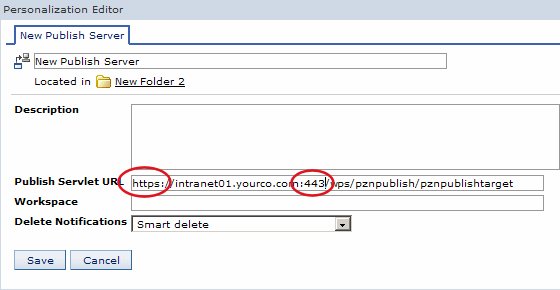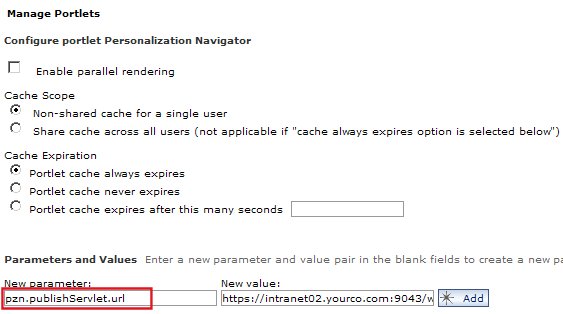Publish personalization rules over SSL
WebSphere Portal Personalization uses the built-in SSL capabilities of WebSphere Application Server to provide secure publishing across unprotected networks. Your personalized portal can benefit from the full range of authentication repositories supported by WebSphere Application Server security.
In some environments even SSL publishing may not be secure enough. The pznload command-line program lets you fully control the transportation of the rules and campaigns during publish. We can encrypt the exported .nodes file and send it using email, or we can use another secure channel such as physical media transported between the staging and production servers.
- Enable SSL between the personalization servers.
From the Personalization Navigator's inline help, click the question mark, and scroll down to the end of the page to locate the link to the help topic on publishing.
- Alter the publish servlet URL for secure publishing.
If the remote server is not using the default HTTPS port of 443, modify the URL by adding a colon and the port number immediately after the host name.

- Configure the personalization server from which we will be publishing to use the HTTPS protocol.
To determine whether a particular URL is valid, point the browser to that location and enter the username and password for the system. If we see the message Publish servlet available and all SSL certificates have been properly imported, we should be able to publish. We can change this URL to redirect all publish jobs through a specific cluster member. If you encounter an error message that indicates the publish service was not available, the local publish servlet may not be configured correctly. To configure the local publish servlet URL:
- Click...
-
Administration menu | Portlet Management | Portlets | Personalization Navigator portlet | Configure portlet
- Add a new portlet parameter, and set value...
-
pzn.publishServlet.url

- Click...
Results
If a Personalization server is configured to use a nonstandard HTTPS port or context root, or if we see messages such as EJPVP20002E: The local publish service was not available when publishing from the authoring environment, the local publish servlet URL might be incorrect.
Parent topic: Publish personalization rules overview
Previous topic: Publish and delete personalization rules using a script
Next topic: Monitoring the status of publishing